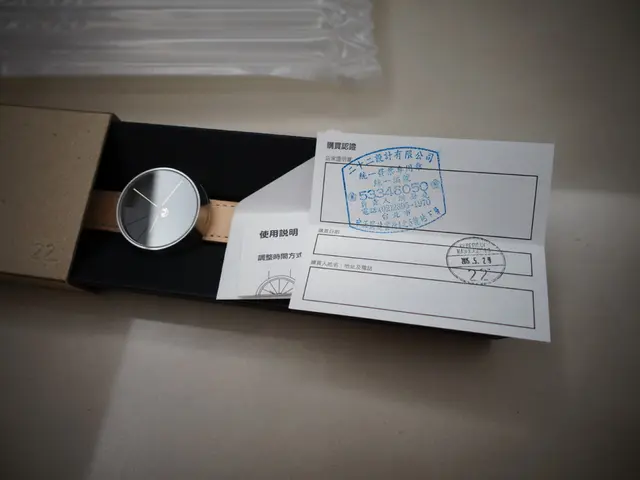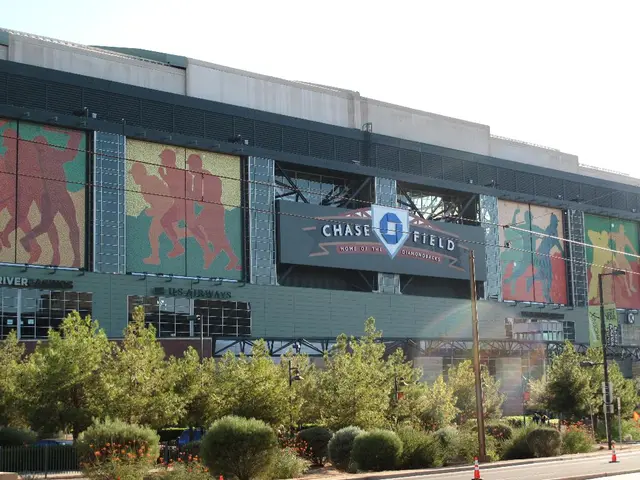Model Chloe Ayling Captured, Threatened with Online Auctioning, and Eventually Freed by Abductors
=====================================================================================
The public response to Chloe Ayling’s 2017 kidnapping was notably mixed and controversial, with significant skepticism and disbelief expressed by some segments of the media and public. This controversy has impacted her career and public image, leading to a complex legacy around her ordeal.
In July 2017, Chloe Ayling, a 20-year-old model, was lured under the pretense of a photoshoot in Milan. However, the location turned out to be an abandoned building, where she was abducted by Lukasz Herba, who planned to auction her as a sex slave on the dark web via a trafficker group known as the Black Death Group.
Despite her eventual release and Herba’s conviction and sentencing, many people questioned the authenticity of her story. This skepticism was fuelled in part by her actions during captivity, such as appearing publicly with her kidnapper and not immediately attempting to escape. These actions were misunderstood or misrepresented by the media and public opinion.
This skepticism led to a polarized public response. Ayling has repeatedly spoken out in media and in her own BBC documentary Chloe Ayling: My Unbelievable Kidnapping, emphasizing her experiences and expressing frustration with the disbelief she faced from some commentators and the broader public. The public doubt delayed broader empathy and complicated her media portrayal.
Professionally, the kidnapping both disrupted and defined her career. She wrote a book, Kidnapped: The Untold Story of My Abduction, and participated in the BBC documentary to reclaim her narrative and shed light on human trafficking issues. While the ordeal initially brought unwanted sensationalism, it also opened new avenues for advocacy and media work focusing on abuse and trafficking awareness.
In 2019, Ayling's kidnapper's brother, Michael Herba, was charged and convicted of kidnapping. Forensic evidence revealed some of Michael Herba's hair in the car used to transport Ayling from Milan to the farmhouse. Lukasz Herba was later revealed to be a Polish man living in Britain.
The controversy surrounding Ayling’s kidnapping exposed challenges survivors face around public perception and victim-blaming. The controversy underscored the difficulty victims sometimes have in convincing the public of their truth, especially amid sensational circumstances. However, it also provided her with a platform to share her story, educate, and engage in discourse around trafficking and kidnapping, impacting her career trajectory toward media and advocacy roles.
In 2020, Herba's sentence was reduced to 12 years and 1 month. Despite the reduction, Ayling's story continues to resonate and serve as a reminder of the complexities surrounding human trafficking and the challenges victims face in seeking justice and support.
References:
- The Times
- BBC News
- The Guardian
- Chloe Ayling: My Unbelievable Kidnapping
- Kidnapped: The Untold Story of My Abduction
- The controversy surrounding Chloe Ayling's kidnapping extended beyond general-news, sparking debates in entertainment circles about the credibility of her story and its impact on her public image as a celebrity.
- Despite the reduction in Lukasz Herba's sentence in 2020, crime-and-justice reports continued to reference Chloe Ayling's case, highlighting the complexities of human trafficking and the challenges victims face in seeking justice and support, a theme she addressed in her book "Kidnapped: The Untold Story of My Abduction" and in her BBC documentary "Chloe Ayling: My Unbelievable Kidnapping."








